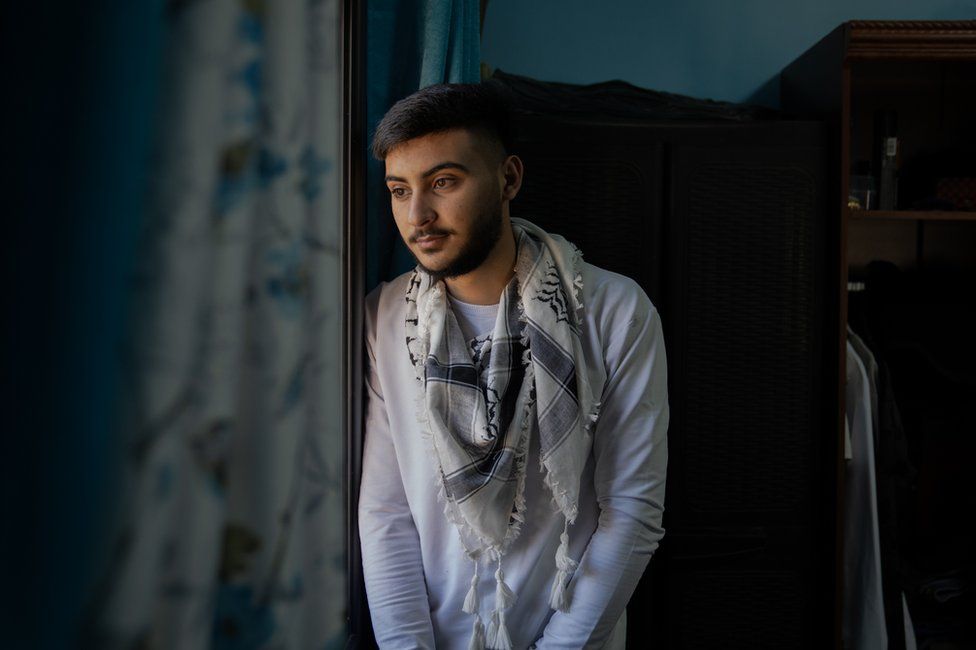In a family home in Bethlehem, in the occupied West Bank, Yazen Alhasnat was sitting next to his mother rubbing sleep from his eyes.
The 17-year-old had been released from prison the night before, nearly five months after being arrested in a 4am Israeli military raid on the home.
Yazen had been held under "administrative detention" - a longstanding security policy, inherited from the British, that allows the Israeli state to imprison people indefinitely without charge, and without presenting any evidence against them.
"They have a secret file," Yazen said. "They don't tell you what's in it."
He was back at home because he was among the 180 Palestinian children and women released from prison by Israel in the recent exchange for hostages held by Hamas in Gaza.
But at the same time the Palestinian prisoners were being released, Israel was detaining people at its highest rate in years. In the weeks since 7 October, the number of people in administrative detention - already at a 30-year high of 1,300 - has shot up to more than 2,800.
When Yazen was released, his family was told not to publicly celebrate in any way or to talk to the media. The same instructions were given to the families of two other teenagers who spoke to the BBC about their experiences. But all three families said they wanted to highlight the issue of administrative detention.
Israel says that its use of the policy is compliant with international law and a necessary preventative measure to combat terrorism. Maurice Hirsch, a former director of military prosecutions for the West Bank, from 2013 to 2016, told the BBC that Israel was "not only meeting international law but far surpassing it", by allowing detainees to appeal and ensuring that their detentions were reviewed every six months.
But human rights groups say Israel's expansive use of the measure is an abuse of a security law not designed to be employed at such scale, and that detainees cannot effectively defend themselves, or appeal, because they have no access to the evidence against them.
"Under international law, administrative detention should be a rare exception," said Jessica Montell, the executive director of HaMoked, an Israeli human rights organisation that monitors detention of Palestinians.
"You are supposed to use it when there is a present danger and no other way to prevent that danger than detaining someone. But it is clear Israel is not using it that way. It is detaining hundreds, thousands of people, without charge, and using administrative detention to shield itself from scrutiny."
Palestinians have been subject to administrative detention in this region since 1945, first under the British Mandate and then in the Occupied Palestinian Territory. The law has in some very rare instances been used against Israeli settlers, but it is overwhelmingly used to detain West Bank Palestinians, including children.
FULL REPORT AND MORE AT: https://www.bbc.co.uk/news/world-middle-east-67600015


No comments:
Post a Comment